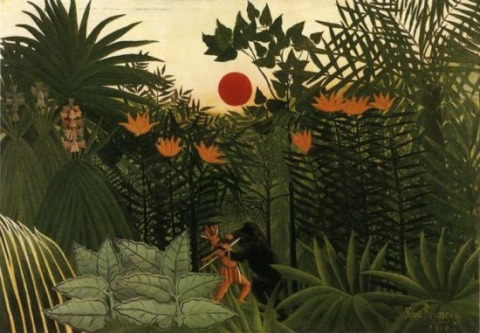
Distinguish, distinguish, distinguish! “Natural” is one of those polyvalent words that get us into tangles if we don’t keep its various senses straight.
By the “natural,” the classical natural law thinkers meant what pertains to our nature, our creational design. For example, the power to reflect on our purposes is called natural because we are endowed with it; honoring parents is called natural because it is fitting for us; and friendship is called natural because we need it in order to flourish.
But in the modern period, people came to call things natural if they are simple, spontaneous, unlearned, unrestrained, unimproved, or unmodified by law or custom. This is what people have in mind when they say it is more natural to babble than to speak, to eat with one’s fingers than to use utensils, to bang two rocks together than to play bongo drums, to push to the front of the line than to wait for one’s turn, or to have sexual intercourse entirely without care or commitment.
Notice that things that are natural in the modern sense are usually profoundly unnatural in the classical sense. For example, the modern thinkers Thomas Hobbes and John Locke called anarchy our “state of nature” or natural condition because they thought government was an invention; we didn’t have it at first. Why did they think it had to be invented? Because anarchy was so violent and inconvenient. But to a classical thinker, the very fact that anarchy is so violent and inconvenient shows that it isn’t our natural condition. The state of affairs most suited to the complete and appropriate unfolding of our natural potentialities is richly articulated by customs and upheld by just laws. Whether we had all these things from the first is beside the point.
So when the modern thinkers denied that man is naturally political, they might have thought they were disagreeing with the classical view, but they weren’t even properly addressing it. They meant something different by the “natural.”